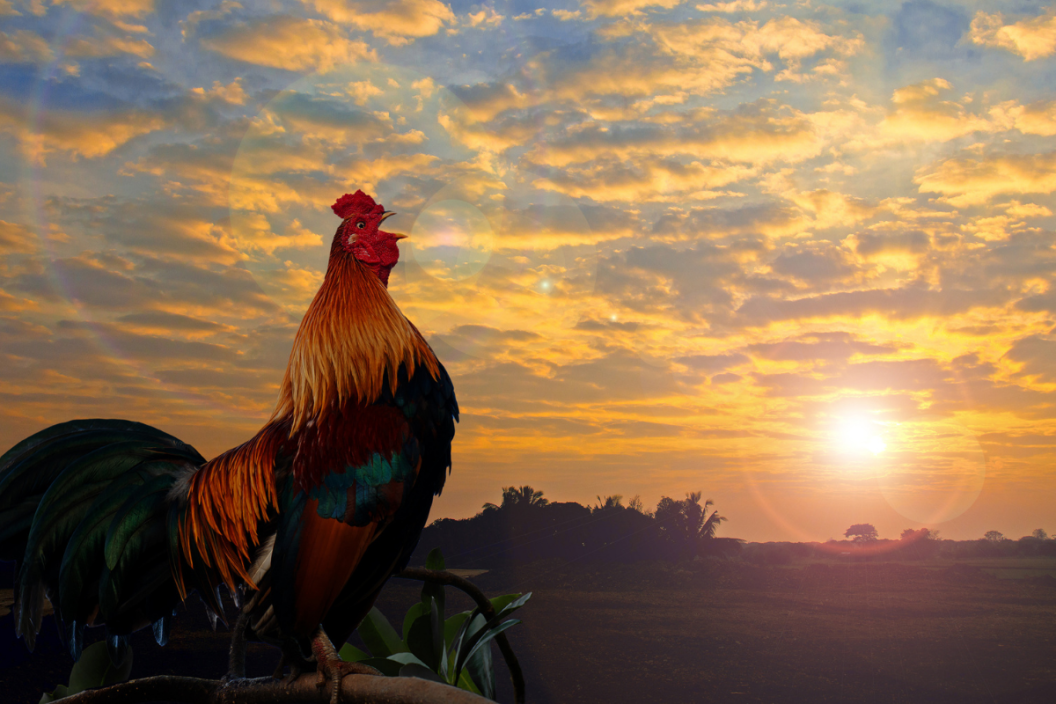Roosters are the farm's natural alarm clock. But how, and why, do roosters crow?
Cock-a-doodle-doo! The rooster's crow is the first thing farmers will hear in the morning.
The crow of a rooster at the crack of dawn is, very often, the first thing we think of when it comes to the leader of the roost. (In large part due to movies and such!) But have you ever wondered why do roosters crow?
How a Rooster Knows When to Crow (Especially in the Early Morning)
So why exactly do roosters crow in the morning? This is because they have an internal clock that helps them anticipate sunrise - yes, that's how roosters know when to do their morning crowing. In a 2013 research study conducted by Takashi Yoshimura and Tsuyoshi Shimmura of Japan's Nagoya University, the researchers delved more into the famous rooster's crow. It was found that roosters have an internal circadian rhythm (daily cycle of activity) of 23.8 hours - which then sets off the crowing at an appointed time, i.e. slightly before the crack of dawn.
However, it is a common misconception that the early morning is the only time there's crowing happening.
When and Why Else Do Roosters Crow?
Yes indeed, roosters can also crow at other times of day. These vocalizations can also occur outside of the early morning, often due to a simple reason such as roosters announcing their territory. As Yoshimura and Shimmura discovered in their research,
"Crowing is a warning signal advertising territorial claim. Our preliminary data suggests that the highest ranked rooster has priority in breaking the dawn, and lower [ranking] roosters are patient enough to wait and follow the highest ranked rooster each morning," said Yoshimura.
Even though rooster crowing is mainly regulated by their internal clock, external factors can also influence a rooster's crow: lights, threats, or you just might have a particularly vocal rooster in the chicken coop.
Do you have a rooster that wakes you up in the morning? Please let us know in the comments below!




